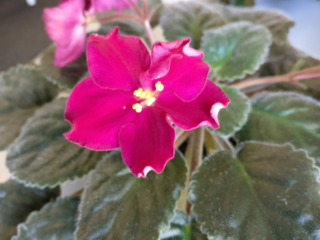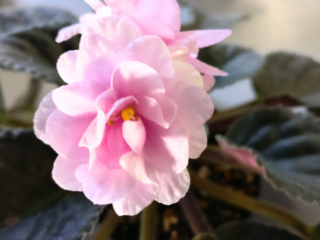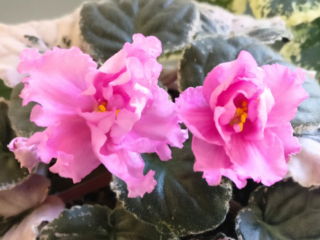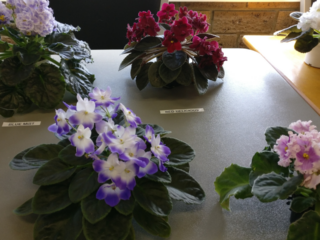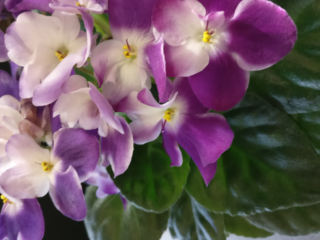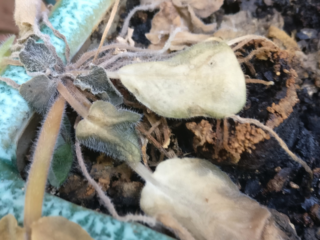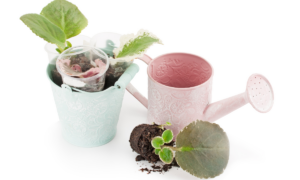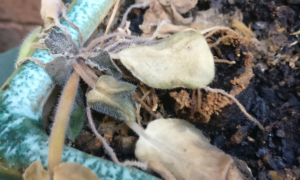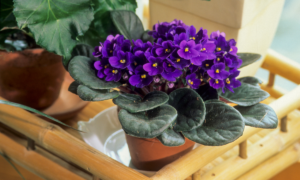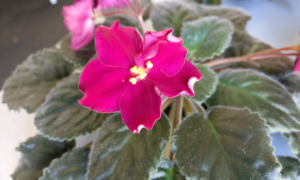Are African violets acid loving? It is an important question to ask when you are considering growing these beautiful and delicate plants. Understanding soil requirements and other factors will help your African violets to thrive. In this blog post, we will explore how best to care for african violets by looking at topics such as soil ph level, fertilizing needs and more – all while answering the essential question: Do African violets love acidic soil?
Table of Contents:
Table of Contents
Ideal Soil pH Level For African Violets
Ideal Soil pH Level For African Violets
So, are African violets acid loving? The answer is yes. African violets are acid-loving.
When it comes to soil requirements for African violets, the ideal pH level is slightly acidic at 5.5-6.5. This helps to ensure that the plant can absorb nutrients from the soil and maintain healthy growth. If your soil has a higher pH than this range, you can add some sulfur or aluminum sulfate to lower it down to an acceptable level before planting your African violet in it.
The best type of potting soil for African violets is one that is well-draining and rich in organic matter such as peat moss or coco coir, which will help retain moisture without becoming soggy or waterlogged.
African Violet Soil Acidity
Soil acidity is an important factor to consider when growing African violets. The pH level of the soil indicates whether it is neutral, acidic or alkaline.
A pH level of 7.0 is considered neutral, and anything below that is acidic. Anything above 7.0 is considered alkaline. For African violets, a slightly acidic level of 6.0 to 6.5 is ideal for optimal growth and health, as outlined by the University of Florida IFAS Extension.
To determine if your soil has the right acidity for African violets, you can purchase a simple soil test kit from your local garden center or online store which will measure the pH levels in your soil sample accurately and quickly without needing any special equipment or knowledge about chemistry or soils science.
You can also use litmus paper strips as a quick way to check if your soil falls within the preferred range for acid-loving African Violets (6-6.5).

If you find that your soil’s pH level isn’t ideal for growing African Violets, there are several ways you can adjust it so that it meets their needs better:
- Adding composted organic matter such as peat moss;
- Using sulfur-based products like aluminum sulfate;
- Applying lime; or
- Using vinegar solutions with caution since too much vinegar could damage plants roots over time due to its high acidity levels.
All these methods should be used sparingly if you have African violets in a common garden bed with other plants, since they may have long-term effects on other plants in the area as well as on wildlife habitats nearby, so make sure to read up on them before taking action!
It’s also important not just focus on adjusting the pH but also making sure that all other essential nutrients needed by african violets are present in adequate amounts in order for them thrive – this includes nitrogen, phosphorus and potassium among others which can be found naturally occurring in many types of soils but might need supplementing depending on what type yours contains already.
Acidic Fertilizer
When it comes to fertilizing your African violets, you don’t need to look for a specialist acidic fertilizer in particular. A standard water-soluble 20-20-20 or 15-30-15 fertilizer will do the job with no problems.
How often you should water depends on the growing conditions of your African violet. It’s best to wait until the soil feels a little dry but not firm or hard when touched before watering again.
Make sure that the foliage stays as dry as possible while watering so that it doesn’t become damaged from too much moisture.
It’s important to remember that adding acidity through fertilization can help give your African violet all the nutrients it needs for healthy growth, but be careful not to overfertilize since this can cause more harm than good!
If there are any signs of nutrient burn (yellowing leaves), flush out excess salts with a thorough leaching using plenty of fresh water and reduce future applications accordingly.
Fertilizing is only one part of caring for an African violet; other factors such as light exposure, humidity levels and temperature also play a role in its health and growth rate.
What Type of Soil Is Best For African Violets?
The best type of potting mix for African violets should be well-draining yet still able to hold onto moisture without becoming too wet or waterlogged; this ensures that roots are not sitting in standing water which could lead to root rot over time if left unchecked. A good option would be something like peat moss or coco coir mixed with perlite and/or vermiculite – these ingredients all help improve drainage while also providing plenty of air pockets so oxygen can reach roots more easily as well as helping retain moisture when needed by plants during dry spells between watering sessions.

Fertilizing African Violets
Fertilizing African violets is an important part of keeping your plants healthy and vibrant. It’s best to fertilize every two weeks during the growing season with a balanced fertilizer diluted to half strength. Avoid fertilizers with high nitrogen content, as this can cause leaf burn and other problems.
When to Fertilize Your African Violet?
African violets should be fertilized during their active growth period, which usually occurs from late winter through early fall. During the dormant period in late fall and winter, you can reduce or stop feeding altogether. If you’re not sure when your plant is actively growing, look for new leaves or flowers – these are signs that it’s time to start fertilizing again!
What Type of Fertilizer Should be Used?
The best type of fertilizer for African violets is one specifically formulated for them; however, any balanced liquid fertilizer will do the trick if used at half strength (diluted). Make sure to avoid high-nitrogen formulas as they may cause leaf burn on delicate foliage.

How Often Should You Fertilize?
During the active growth period, African violets should be fed every two weeks with a diluted liquid fertilizer solution. This will help ensure that they get all the nutrients they need without overfeeding them; too much fertilizer can lead to root burn and other issues. It is important not to skip feedings either, as regular applications are key for optimal health.
Fertilizing African Violets is an important part of their care, but it’s also important to understand the best times, types and frequencies for fertilization. Next we’ll look at the effects of water pH on African Violets, which are acid loving plants.
Water pH: Effects on the growth of your African violets
Effects on Growth of Water pH
African violets are sensitive to the pH of their water.
A neutral pH is 7.0 and African violets prefer a slightly acidic soil or water in the range of 6.7 to 7.0. If the soil or water becomes too acid, nutrients become less available to the plant, leading to malnutrition and stunted growth even with adequate fertilization.
When watering your African violets, it’s important to use either distilled or rainwater that has been tested for its pH level before using it on your plants.
Tap water can be used if you test it first as many municipalities add chemicals such as chlorine which can affect the pH levels of your plants’ environment negatively over time if not monitored closely enough.
If you find that your African violet isn’t growing properly despite proper care and feeding, check both the soil’s moisture content and its pH level immediately by testing with a simple litmus paper test strip from any garden center or home improvement store. This will give you an indication of whether there may be an issue. At least until further investigation can be done into other potential causes for slow growth rates such as pests infestations or diseases that could also cause stunting in some cases.
It is also important to note that sudden changes in temperature (especially drastic ones) can have adverse effects on African Violets so keep them away from drafts when possible!
In addition, try not to move them around too much once they are established since this could lead to shock-induced dormancy periods where no new leaves will grow until they adjust again after being moved back into place – usually within a few weeks depending on how far they were moved initially.
The level of acidity or alkalinity in water affects the health of many houseplants, including african-violets. If the pH level is too high or too low, it can inhibit plant growth and result in unhealthy, malformed foliage.
FAQs in Relation to Are African Violets Acid Loving?
Do African violets grow in acidic soil?
Yes, African violets like acid soil, some people mix coffee grounds in around the soil to keep it acidic.
What is the best fertilizer for African violets?
African violets require a balanced fertilizer with equal parts of nitrogen, phosphorus and potassium. A good choice is a 20-20-20 water soluble fertilizer diluted to half strength. Fertilize every two weeks during the growing season and monthly during the winter months. Avoid fertilizers that are high in nitrogen as this can cause leggy growth and discourage flowering. Also, avoid using slow release fertilizers as these can burn African violets’ delicate roots.
Can you use regular fertilizer on African violets?
Yes, you can use regular fertilizer on African violets. It is important to choose a balanced fertilizer with an equal ratio of nitrogen, phosphorus and potassium for best results. Fertilizer should be applied at half strength every two weeks during the growing season (spring through fall). During winter months when plants are not actively growing, fertilizing should be reduced or stopped altogether. Always read and follow the instructions on the label of your chosen fertilizer for best results.
Are coffee grounds good for African violets?
Yes, coffee grounds can be beneficial for African violets. Coffee grounds are a great source of nitrogen and other nutrients that help to promote healthy growth in plants. They also help to improve the soil’s drainage and aeration, which is important for these types of plants. When used correctly, coffee grounds can provide African violets with an extra boost of nutrition and energy needed for optimal health. However, it is important to use them sparingly as too much can cause nutrient burn or even kill the plant.

How do I make soil more acidic for African violets?
To make soil more acidic for African violets, you can use a combination of peat moss and perlite. Start by mixing equal parts of each in a container. Add enough water to moisten the mixture until it is damp but not soggy. This will create an acidic environment that African violets need to thrive. You can also add some fertilizer or compost to the mix if desired, as this will provide additional nutrients for your plants. Finally, adjust the pH level with an acidifying agent such as sulfuric acid or aluminum sulfate before planting your African violets in the soil mixture.
Is water pH important for African violet growth?
Yes. The acidity or alkalinity of irrigation water is an important consideration for African Violets, as too high or low a concentration of either can cause the plant to suffer. This is because when the nutrient availability in soil is altered, plant growth is affected. Therefore, when preparing to water your African Violet, make sure to test the PH of your water to make sure it is neither too basic nor too acidic. Aim for a pH of 6.7 – 7.0. The easiest way to do this is to use a test strip, which you can purchase at any garden store.
Conclusion
So, are African violets acid loving? In conclusion, yes, they are. African Violets are acid loving plants and require a soil pH between 5.5 and 6.5 to thrive. To make soil acidic for African violets, you can use a combination of peat moss and perlite. Start by mixing equal parts of each in a container. Add enough water to moisten the mixture until it is damp but not soggy. This will create an acidic environment that African violets need to thrive.
They should be fertilized regularly with an acidic fertilizer and repotted every two years in a potting mix that is specifically designed for them. With the right care, these beautiful plants can bloom indoors or outdoors year-round! So if you’re looking for an easy-to-care-for houseplant that will bring beauty to your home, consider growing African Violets – they just might be the perfect choice.
Do you want to learn how to successfully grow and propagate African Violets? Are you looking for tips on caring for them in order to get the best results? Join us as we explore various methods of propagation, soil composition, fertilization techniques and more. With our expert guidance, your African Violet collection can thrive like never before!

